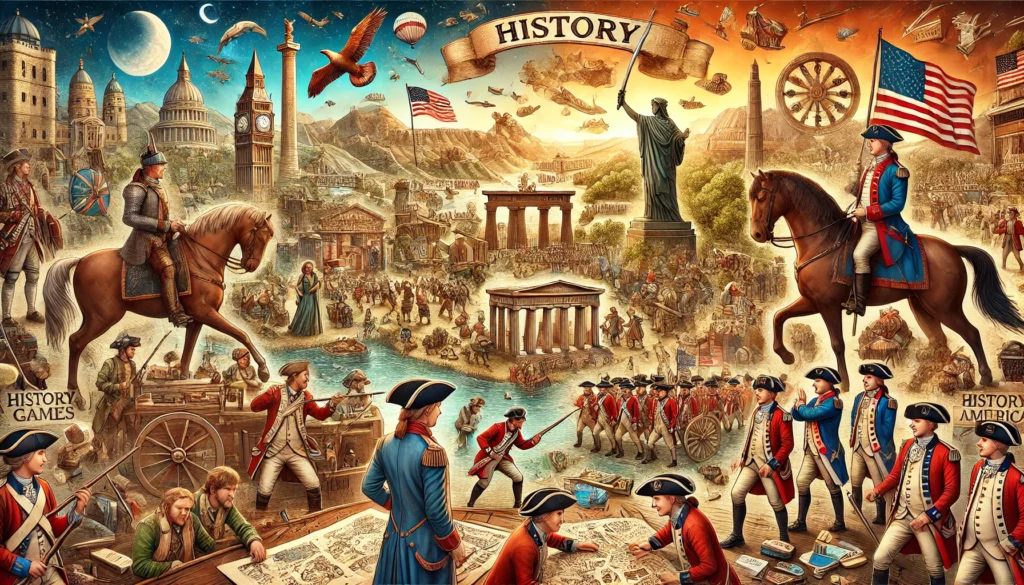“History Spot Games” immerse players in the depths of human history, offering both enlightening educational content and captivating gameplay. By turning historical events into interactive experiences, these games not only entertain but also educate, providing insights into the complex tapestry of human civilization. This article explores the various facets of History Spot Games, from their ability to make history accessible to their role in enhancing learning through engagement.
Table of Contents
ToggleIntroduction to History Spot Games
History Spot Games are a genre of video games that focus on recreating historical events, cultures, and figures with a high degree of accuracy and detail. These games range from strategy and simulation to adventure and role-playing, each offering a different perspective on historical narratives. Players might find themselves crafting empires, exploring ancient ruins, or leading troops in pivotal battles. Through these experiences, gamers gain a deeper understanding of the forces that have shaped the world.
The Educational Value of History Games
One of the primary benefits of History Spot Games is their educational potential. They serve as dynamic teaching tools that engage players in a way traditional educational methods often fail to do.
- Interactive Learning: Players learn by doing, which reinforces knowledge retention. As they make decisions and observe the outcomes, they understand historical cause and effect in a personal and impactful way.
- Cultural Awareness: These games often explore diverse cultures and perspectives, helping players appreciate the richness of global history and the complexity of cultural interrelations.
- Critical Thinking: Many history games require strategic planning and decision-making, enhancing players’ critical thinking skills within a historical context.
Popular History Spot Games
- Civilization Series: Players guide a civilization from the Stone Age to the Information Age, making decisions that determine the cultural, technological, and political development of their society.
- Assassin’s Creed Series: While known for its action and adventure, this series is deeply rooted in historical periods, offering detailed recreations of cities and events from various epochs.
- Total War Series: Combining real-time tactics and turn-based strategy, this series allows players to manage historical kingdoms and engage in large-scale battles.
How History Games Enhance Historical Accuracy
Developers of History Spot Games often collaborate with historians to ensure accuracy in their portrayals. This commitment enhances the authenticity of the experience:
- Detailed Research: From architecture and clothing to language and social customs, developers strive to accurately represent historical settings.
- Realistic Scenarios: Battles and events are often based on real historical data, providing players with scenarios that reflect what actually happened.
- Diverse Perspectives: By including various cultural viewpoints, these games offer a more nuanced understanding of history.
Challenges in Developing History Games
Creating engaging and accurate history games comes with unique challenges:
- Balancing Fun and Facts: Developers must find the right balance between historical accuracy and engaging gameplay to ensure that the games are both informative and enjoyable.
- Complex Narratives: History is complex and often controversial. Games need to handle sensitive topics with care to avoid misrepresentation.
- Technical Limitations: Recreating historical environments in detail requires significant resources, which can be a hurdle for developers.
Conclusion
History Spot Games are more than just entertainment; they are powerful educational tools that bring history to life. By engaging players in the past, these games foster a deeper appreciation and understanding of the forces that have shaped our world. Whether you’re a student, a history buff, or just a curious gamer, History Spot Games offer a compelling blend of learning and fun.

